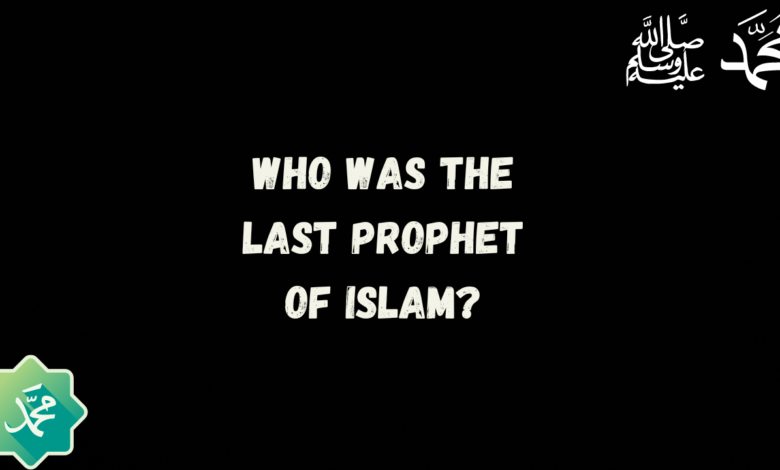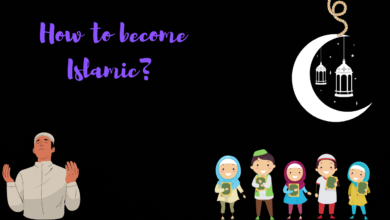Who was the last Prophet of Islam?

Introduction
The religion of Islam, founded in the 7th century CE, has its foundations rooted in the teachings and life of the last prophet, Muhammad (peace be upon him). Muslims believe that Muhammad is the final prophet, chosen by Allah (God) to deliver His message and guide humanity towards righteousness and submission to the divine will. Muhammad’s significance as the last prophet of Islam is not only integral to Islamic theology but also carries profound implications for the faith’s practices and beliefs.
Prophetic Tradition in Islam: A Brief Overview
Islam, like other Abrahamic religions, holds the concept of prophethood in high regard. Prophets are considered messengers of God, chosen to convey His guidance and laws to humanity. Muslims believe that God has sent a series of prophets throughout history, starting with Adam and culminating in the final prophet, Muhammad.
Muhammad’s Life and Mission
Muhammad ibn Abdullah was born in the city of Mecca in present-day Saudi Arabia in the year 570 CE. He grew up in a society marked by tribalism, idol worship, and social inequality. At the age of 40, Muhammad received his first revelation from Allah through the Angel Gabriel while meditating in a cave on the outskirts of Mecca. These revelations, which continued over a period of approximately 23 years, were later compiled into the holy book of Islam, the Quran.
Muhammad’s message centered around monotheism, social justice, compassion, and the importance of moral conduct. He emphasized the worship of the one true God and the rejection of idolatry. Muhammad’s teachings also encompassed aspects of jurisprudence, ethics, and spirituality, providing a comprehensive framework for personal and communal life.
The Seal of Prophethood
The concept of Muhammad being the final prophet, known as the “Seal of Prophethood” or “Khatam an-Nabiyyin” in Arabic, is a central tenet of Islamic belief. This concept is derived from the Quran itself, where Muhammad is described as the last prophet sent to guide humanity:
“Muhammad is not the father of any of your men, but he is the Messenger of Allah and the last of the prophets. And Allah is Ever All-Aware of everything.” (Quran, 33:40)
This teaching indicates that there will be no prophet after Muhammad, and his message is intended to be timeless and universal, relevant for all of humanity until the end of time.
Implications of Muhammad’s Finality
The belief in Muhammad as the last prophet has several important implications for the Islamic faith:
The Permanence of the Quran: With Muhammad being the final prophet, the Quran is considered the ultimate and unaltered word of God. Muslims believe that its teachings are complete and relevant for all aspects of life.
The Authority of Hadith: The Hadith literature consists of recorded sayings and actions of Muhammad. These teachings serve as a practical guide for Muslims, elaborating on the principles laid out in the Quran.
Unchanging Message: Since there will be no more prophets, Muslims believe that the message of Islam will remain unchanged. This concept provides a sense of stability and consistency in the face of evolving societies and cultures.
Continuity of Faith: Muhammad’s finality emphasizes the unity of all believers under one faith, preventing divisions that could arise from the emergence of new prophets or revelations.
Focus on Good Deeds: With the end of prophethood, Muslims understand the importance of embodying the teachings of Islam through their actions, as there will be no new prophet to provide further guidance.
Conclusion
The last prophet of Islam, Muhammad (peace be upon him), stands as a central figure in the faith’s history and teachings. His mission was to convey the final message from God to humanity, encapsulated in the Quran. The belief in Muhammad as the Seal of Prophethood underscores the permanence and universality of Islam’s teachings, shaping the faith’s practices, beliefs, and the lives of its followers around the world.
FAQs about the Last Prophet of Islam
Who was the last prophet of Islam?
The last prophet of Islam is Prophet Muhammad (peace be upon him), also known as Muhammad ibn Abdullah. He is considered the final prophet in the Islamic tradition.
What is the significance of Prophet Muhammad being the last prophet?
Prophet Muhammad being the last prophet holds immense significance in Islam as it signifies the completion of the message of monotheism and guidance from God to humanity. His teachings and revelations, compiled in the Quran, are believed to be the final and complete guidance for all aspects of life.
When did Prophet Muhammad live?
Prophet Muhammad was born in the year 570 CE in the city of Mecca, which is located in present-day Saudi Arabia. He lived until 632 CE.
What role did Prophet Muhammad play in Islamic history?
Prophet Muhammad is considered the final messenger of God in Islam. He played a pivotal role in spreading the message of monotheism, social justice, morality, and spirituality. His teachings laid the foundation for the Islamic faith and influenced the development of Islamic civilization.
How did Prophet Muhammad receive revelations?
According to Islamic belief, Prophet Muhammad received revelations from God through the angel Gabriel (Jibril in Arabic). These revelations were compiled over his lifetime and make up the Quran, the holy scripture of Islam.
What were some of Prophet Muhammad’s major achievements?
Prophet Muhammad’s major achievements include the unification of the Arabian Peninsula under the banner of Islam, the establishment of a just and ethical social order, the spread of monotheism, and the formation of a strong community of believers (ummah).





